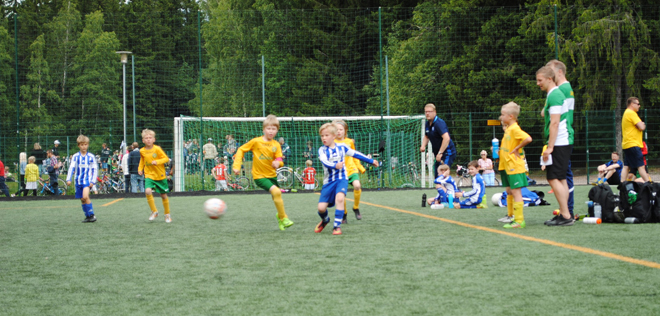Men born early in the year do better in politics and football

Male candidates who are born very early in the year are twice more likely to be elected to parliament compared to those born very late in the year.
 Photo: Heikki Venhola / Flickr.com (cropped)
Photo: Heikki Venhola / Flickr.com (cropped)
No such advantage was observed for female candidates. In municipal elections, no effect was observed for either gender.
A new study by Janne Tukiainen (VATT), Tuomas Takalo (Bank of Finland) and Topi Hulkkonen (Statfinn Oy) sheds light on the causes and scope of the well-known relative age effect by studying it in the context of Finnish football and politics. The relative age effect refers to the advantage gained by children born in the early months of the year compared to children born later in the same calendar year in school and in sports teams. The study proves that the relative age effect has quite far-reaching impacts that even shape the election of candidates to important political positions.
The study also shows that the oldest boys of an age group are more likely to play football in regional teams or in international youth tournaments, and later in the Finnish Football League. Results show that for girls, the advantage is less pronounced than for boys in football as it was in politics.
“The relative age effect is often explained with two theories: it is easier for the older children be successful, and as a result, more resources are allocated to them. On the other hand, the success may also give them more confidence”, says Janne Tukiainen.
“Based on our research, confidence and other psychological factors seem to play a major role in the relative age effect, as the impact is particularly evident in men and only in very competitive environments. In the light of these results, schools and sports teams should pay more attention to the actual maturity level of children rather than the year they were born”, Tukiainen continues.
The causal relationship between the date of birth and success in national elections was shown by comparing candidates born at the end of December to those born at the beginning of January. These candidates are almost exactly of the same age, but have been in different classes at school; one has been the youngest of the class, and the other the oldest. In practice, it has been random which year they have been born in.
The causal relationship between the date of birth and success in sports was demonstrated using the change of rules in 1987. Before 1987, an age group was divided at 1 August. After 1987, the age groups have been divided according to calendar years. During the old system, men born in the autumn were over-represented in the Finnish Football League. After the change, that position was taken by those born early in the year. This is indicative of the facts that a causal relationship and not mere correlation exists between relative age and success in sports, and that the impact cannot be due to any particular season of the year being a more favorable time to be born.
The main data for the study consisted of candidates in Finnish parliamentary elections in 1999–2007 and municipal elections in 1996–2012, and all the players of the Finnish Football League until 2015. Data from national youth teams for both girls and boys was also used.
Publication:
Gender Specific Relative Age Effects in Politics and Football
VATT Working Papers 94. Helsinki 2017.
More information:
Janne Tukiainen, Chief Researcher, VATT; Visiting Associate Professor, London School of Economics. [email protected], +358 295 519 451
Tuomas Takalo, Senior Research Adviser, Bank of Finland; Visiting Scholar, VATT. [email protected], +358 50 373 1399
Janne Tukiainen
Local public finance and provision of public services
Press release
Press release
gender differences
relative age effect

